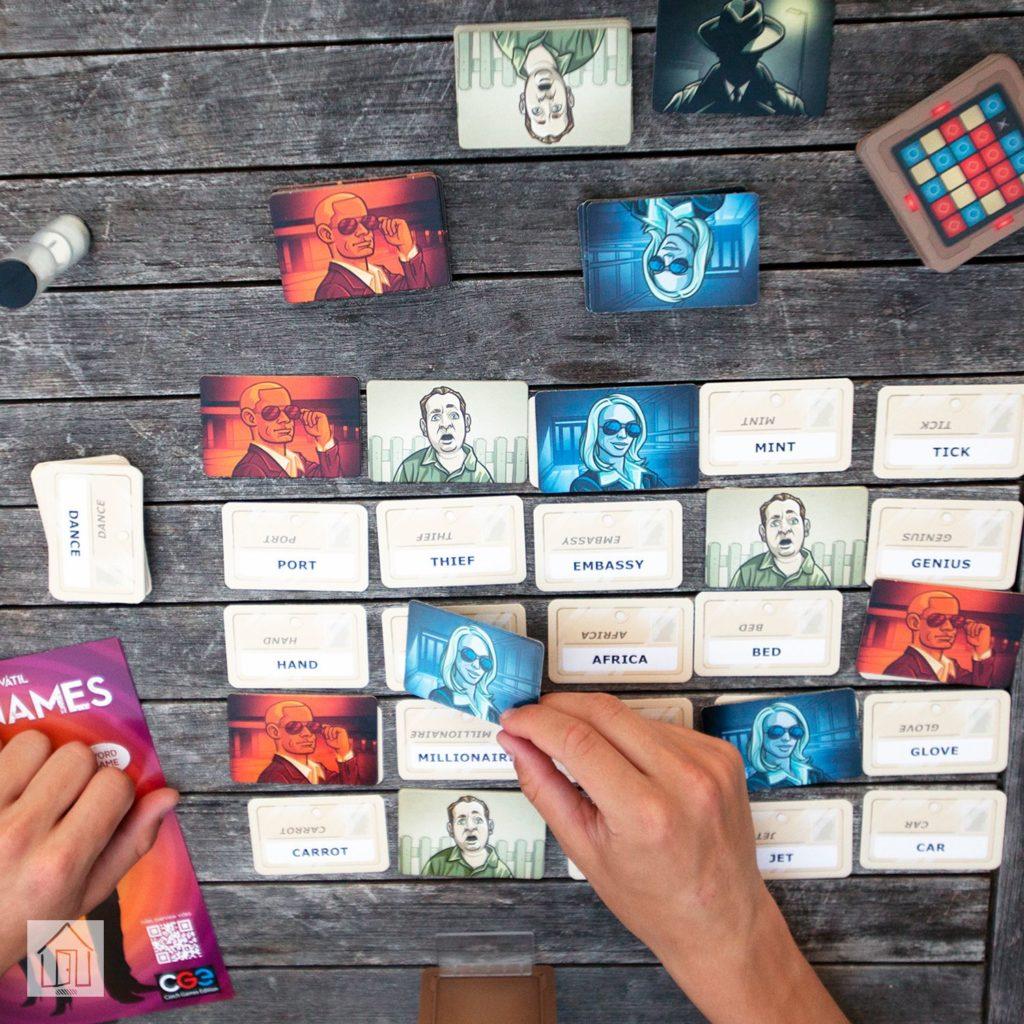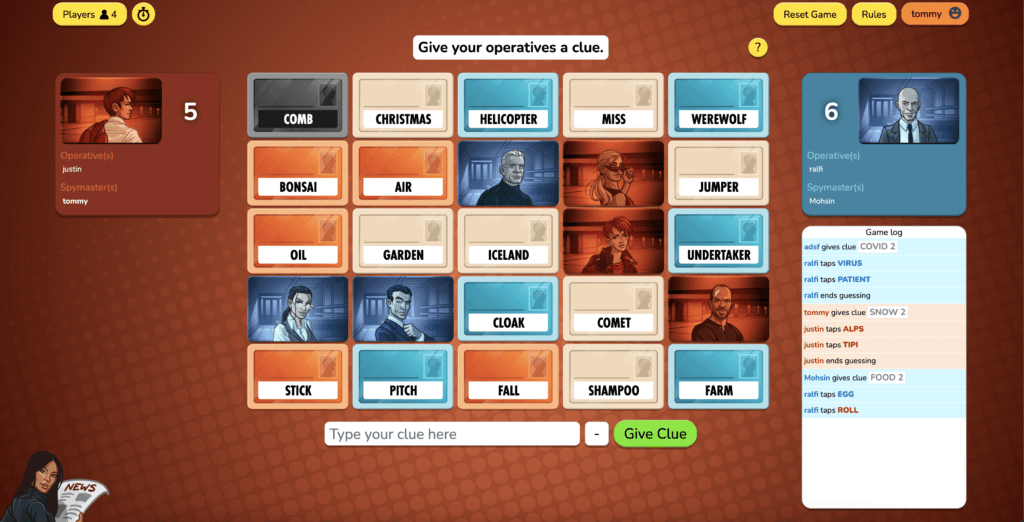I chose Codenames because it is a well-liked social game featuring team-competition as the player structure and hidden information that must be shared within a team.
Codenames is a board game with a web version (which is what I played) created by Vlaada Chvátil.

Design and Theme
The theme of Codenames is espionage, as the player is roleplaying as spies trying to contact their operatives before their rivals while avoiding the assassin. I think this is a perfect theme for the gameplay, as it creates a fantasy where the spymasters are under-watch and must communicate in code, while the agents must try their best to decipher the clues and apply them to codenames of agents in the field. The visual design of the board game (or in my case, the website) as well as the list of available codename words all reinforce this theme. Everything from the two spies on the cover to he “faction cards” exude chic and slick spy aesthetics.
Mechanics (The broader MDA definition)
To my pleasant surprise, I noticed several parallels between the mechanics of Codenames and our game:
- Each team has one spymaster (just like the commanders in our game) with information that they must communicate with the rest of the team
- Each team has operatives (like the explorers in our game) who must execute tasks with their own interpretation of information given
- The objective is for each team to race to find all their operatives (like finishing all the missions in our game)
Of course, Codenames is quite different when it comes to the procedures during play. The game is turn based, with each team switching off. During their turn, the spymaster says a clue and a number n, and the operatives must use that clues to pick n+1 codenames that they think match the clue. Any wrong guess ends the turn.
Comparison to other games and kinds of fun
Party games have the unique strength of leveraging fellowship to make even waiting fun
Codenames has all the kinds of fun you’d expect from a traditional deduction-based party game: fellowship from socialization, challenge from trying to win, and expression from being able to play your character however you’d like. As I mentioned above, it also has the fun of fantasy due to its excellent theme and gameplay that matches the theme.
On particular point I’d like to make is Codenames is extremely fun even when it wasn’t my turn, and I was just observing and laughing at my opponents actions. (“How could you think ‘roll’ is related to food? No the fact that it’s next to ‘egg’ is not an excuse.”) In most games, waiting your turn often becomes boring, but party games have the unique strength of leveraging fellowship to make even waiting fun. In fact, I think being able to relax after a stressful turn and just watch your opponent creates a better experience than a version of the game where everyone takes turns simultaneously. This is something I’d love to leverage for our game.
Handling of abuse
Codenames doesn’t do anything special to handle abuse. Its online version doesn’t even have a profanity filter, allowing me to type any horrible thing into the clue box.
How would I make it better
Even though I said earlier that observing the opponents on their turn is fun, the downtime while the spymasters think up clues is not fun for anyone involved. To improve this, I propose consolidating this downtime by giving the spymasters 5 minutes to think up clues, during which time the operatives are free to get up and leave the game, so there is less downtime during play.




